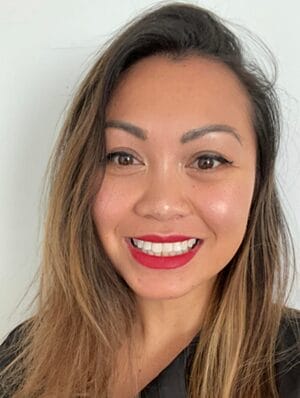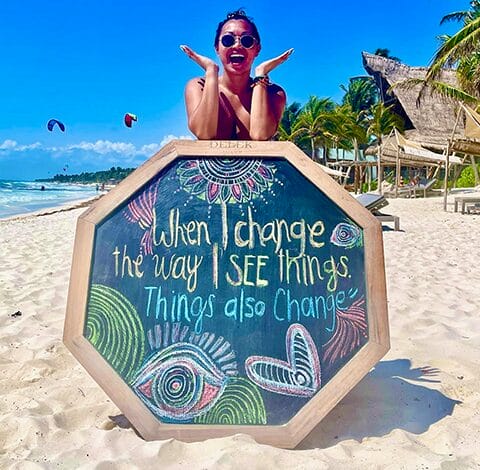It’s Okay to be Okay – Crystal’s Story


When I first met Crystal, I was taken aback by her energy. Even over zoom, which can often feel contrived and stiff, she exuded vibrance and groundedness. Perhaps it was her brightly colored, almost tropical feeling home or the smile that was ever-present behind her eyes throughout our conversation. Or maybe it was the intentionality with which she had agreed to meet and the fact that she’d built time into her morning to meditate before we connected. Either way, the woman I met was far from the preconceived picture I’d conjured in my mind of a veteran who had struggled with suicidality, addiction, and stress. It was immediately apparent that she’s been doing the work of healing.
Crystal’s mother pressured her to join JROTC in highschool after she was expelled from another school, ironically, for “trafficking” LSD for a sibling. From there, she and a friend joined the U.S. Army as a part of the buddy program just after 9/11 and made plans to choose a station in Hawaii. She described a bright-eyed and bushy-tailed ambition to have a “really cool” military intelligence job that would lead her to a career in the CIA, but ended up on a logistics path in order to stay with her friend who was unable to get the clearance needed for MI jobs.
Something that struck me was that, prior to Crystal’s first deployment, she was a victim of MST, or Military Sexual Trauma. She very candidly mentioned that MST is an acronym to be familiar with if working with female veterans (an estimated 1 in 4 female veterans report MST at some point during their service). Crystal kept her traumatic experience to herself and shortly thereafter wound up on her first of 5 deployments. “It’s funny what you get used to,” Crystal said about deployment. There was often indirect fire near the base, and it just became a part of day-to-day life. She even described maintaining a sense of humor, albeit a dark one, after the place she was staying burned down with her possessions inside. “On the one hand, it was kind of cool as a young person to come face to face with your own mortality. On the other hand, it was interesting how desensitized I became to sights and sounds that would scare most people.”
After two deployments, Crystal pursued a change in career because she wanted to be more like the “tip of the spear,” a phrase typically used to describe front line soldiers entering a war zone. Although women weren’t sent to the front lines of combat at that time, she wanted to feel the direct impact of her work, and operating behind the scenes in logistics wasn’t the way to do that. “I kind of felt like I was the handle of the spear. I was always looking for more, that adrenaline rush, that sense of adventure.” She found her next challenge as a Special Operations Combat Medic, which was both physically and mentally rigorous and came with the prestige of making it into and through a very tough training program.
This desire to level up was a part of a much larger trend in Crystal’s life.
As a self-described “tiny little asian girl,” she describes her younger self as a girl “with something to prove.” She was driven to work hard and play harder, to be the best, to accomplish as much as possible, and to carve her niche in the world. This drive was amplified in the male and action-oriented military environment, and she found herself turning to alcohol and burning the candle at both ends to keep up. “To me, the whole thing was a party. I didn’t realize it at the time, but I stopped taking care of myself.” After five deployments and 16 total years in the military, she hit a wall and was physically, emotionally, and spiritually depleted. Crystal was medically retired for PTSD, MST, Major Depressive Disorder, Anxiety, and Alcohol Abuse. “I realize now that what was driving me was trauma based in many ways. To feel like you’re not enough on the inside leads you to seek accomplishment or validation externally. It becomes too much.”




Crystal’s work after leaving the military became learning how to care for and heal herself. The journey began with rehab and therapy, which opened her eyes to the power of vulnerability, and understanding her own patterns. Although she did her best to utilize the resources the VA provided, they were often backlogged and seemed to “incentivize a victim mentality,” leaving her disillusioned and feeling like “just another number.” Crystal knew she had to explore alternative options. She became a certified yoga instructor, deepend her meditation practice, and began exploring other alternative healing modalities. Through her searches, she learned about the power of plant medicine and found Heroic Hearts Project.
Her first therapeutic experience with plant medicine was the perfect culmination of the work she’d begun to do to heal on her own. She entered the experience expecting to confront a blackness inside of herself but ended up being blown away by her inner world. “One of the biggest takeaways from that first experience that changed everything for me was realizing that it’s okay to be okay.” She says that first and subsequent plant medicine experiences have made her more empathetic and have helped her to forgive those who hurt her (without justifying their actions). She describes feeling whole again, and being ready to start a family knowing that she’s done the work to heal her trauma and to guide new life into this world.
Crystal’s vulnerability is absolutely touching. She choked up as she described that owning her story has, in so many ways, freed her. “This medicine has shown me that you can trust the universe…trust that you can just show up and be authentic.” And while the work is never over, it’s apparent that Crystal has made peace with her past and has cultivated a deep respect and tenderness for herself. Plant medicine has helped her on her journey back to herself, and she’s okay being okay.
Previous Post
Trust the Process – Josh’s Story
